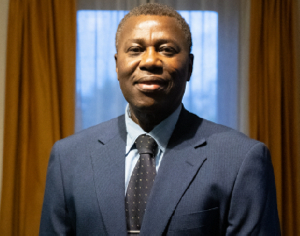Accra, May 25, GNA - An overview of a research presented on Monday in Accra said government lost $18 million annually as result of illegal chainsaw milling.
It said the loss was twice the annual revenue (stumpage fees) collected by the Forestry Commission of Ghana. Dr Emmanuel Marfo, a Research Scientist at the Forestry Research Institute who presented the report at a two-day Tropenbos - European Union (EU) Regional workshop on chainsaw lumbering in West Africa said despite the banning of illegal chainsaw milling activities in the country, the practice had continued to boom.
The workshop, which formed part of the five-year (2007/2012) EU Chainsaw Project was to develop alternatives to illegal chainsaw lumber production through stakeholder dialogue, share country experience and identify best practices to salvage the fast depleting forest reserves. It is being attended by over 60 participants drawn from the project countries throughout Africa including Ghana, Nigeria, Cameroun, Guyana, South Africa, DR Congo among others.
Dr Marfo said the continued booming of the practice in the country was as a result of the failure of successive governments to muster the political will to enforce the law that banned it. He said currently, over 84,000 people were engaged in the practice in eight forest districts of the country adding that because there was no alternative livelihood for them, government was not able to enforce the law since its enforcement would mean taking those people out of jobs with its political ramifications.
He said people who were granted concessionary rights to engage in the business felled up to 2 million cubic metres of timber annually, falling short of the 2.4 million cubic metres, felled by the illegal operators for the same period.
He warned that if the practice was not controlled, it would present the country with dire consequences on her rainfall pattern, climatic conditions among others in the next few years. Dr Marfo, therefore, called on government to find alternative livelihood for people in the areas of forest reserves to prevent them from engaging in the business.
The overview report was a case study of chainsaw milling in Ghana and was produced within the framework of the 2007/2012 EU Project "Developing alternatives for illegal chainsaw milling in Ghana and Guyana through multi-stakeholder dialogue".
General News of Monday, 25 May 2009
Source: GNA












